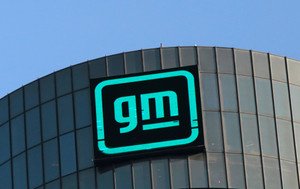GM signs supply deal with Vianode for synthetic graphite for EV batteries
Published by Global Banking & Finance Review®
Posted on January 15, 2025
2 min readLast updated: January 27, 2026

Published by Global Banking & Finance Review®
Posted on January 15, 2025
2 min readLast updated: January 27, 2026

GM and Vianode sign a multi-year deal for synthetic graphite, crucial for EV batteries, aiming to strengthen North American supply chains.
By Nick Carey
LONDON (Reuters) - General Motors has signed a multi-year, multi-billion dollar agreement for Norway's Vianode to provide the U.S. automaker with synthetic graphite anode materials for its electric vehicle batteries, the companies said on Wednesday.
The synthetic graphite will be used for EV batteries made by the Ultium Cells joint venture between GM and LG Energy Solution.
The deal will run from 2027 when Vianode launches production at a plant in North America, through to 2033.
"This project will help advance our battery technology and drive greater value to our customers," Jeff Morrison, GM's senior vice president of global purchasing and supply chain, said in a statement.
China controls 95% of the global supply of graphite, which is vital for EV battery production. This has left western automakers and governments striving to develop alternative sources.
"The entire EV ecosystem depends upon the import of one critical mineral," Vianode CEO Burkhard Straube told Reuters. "What General Motors wants and we want is a resilient supply chain for North America."
Straube said Vianode's plant will be either in the United States or Canada, close to GM and LG's battery production, but added he could not disclose a location as negotiations with partners and governments are ongoing.
In its first planned phase, the plant should produce around 80,000 tons of synthetic graphite annually by 2030, or enough to supply around 1.5 million EVs. Vianode already has a production plant in operation in Herøya, Norway.
The company is in talks to supply other automakers, Straube said.
Vianode's synthetic anode graphite has a 90% lower CO2 footprint than conventional production methods and Straube said his company can scale up faster than a mining operation.
"The EV industry is still growing and exploring a new mine takes a decade, maybe longer," Straube said. "With synthetic graphite, you can build another plant in two or three years."
(Reporting by Nick Carey, Editing by Louise Heavens)
The main topic is GM's agreement with Vianode to supply synthetic graphite for electric vehicle batteries.
Synthetic graphite is crucial for EV batteries, providing a stable supply chain alternative to China's dominance.
The plant will be in North America, either in the United States or Canada, but the exact location is not yet disclosed.
Explore more articles in the Finance category
